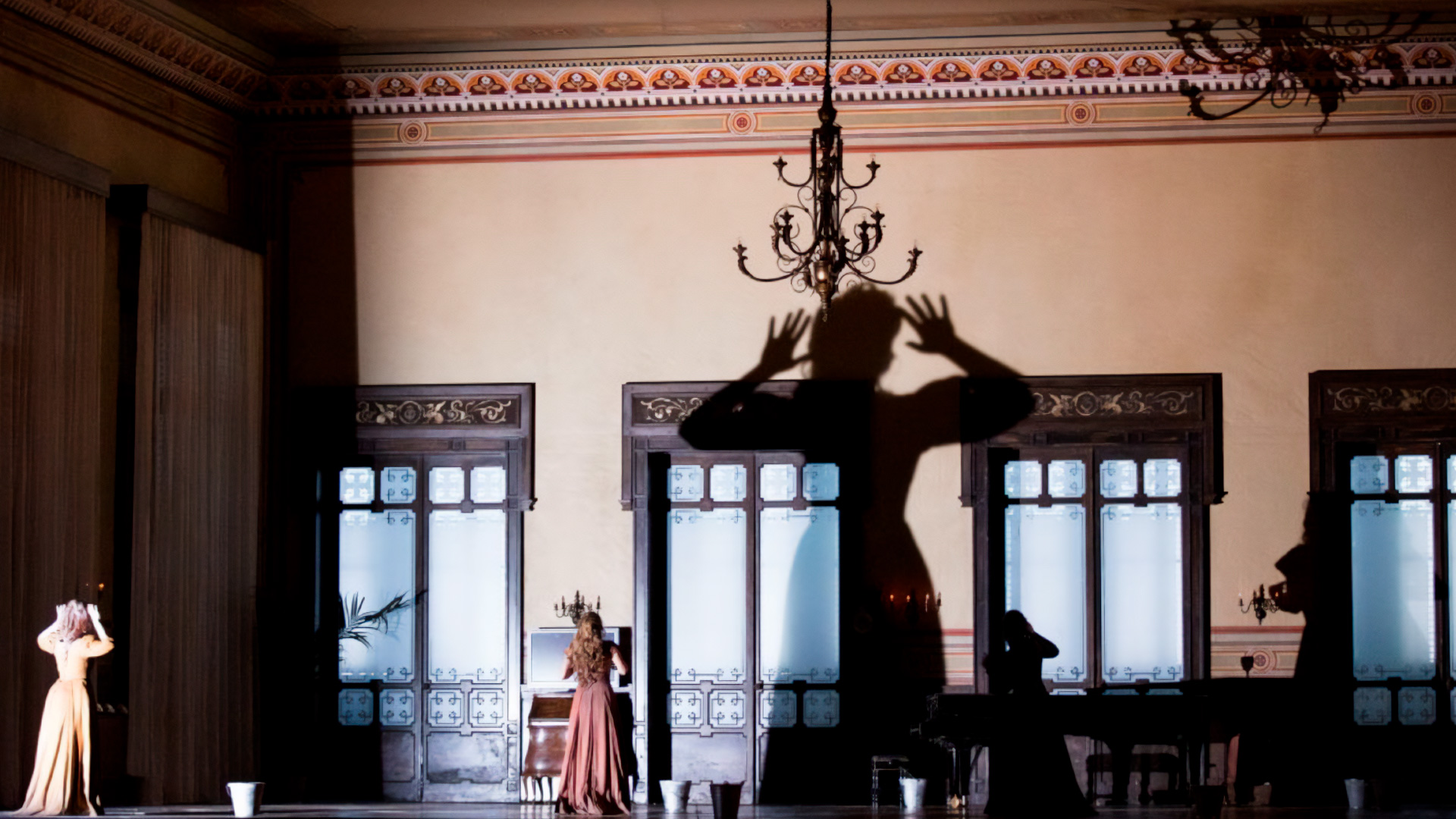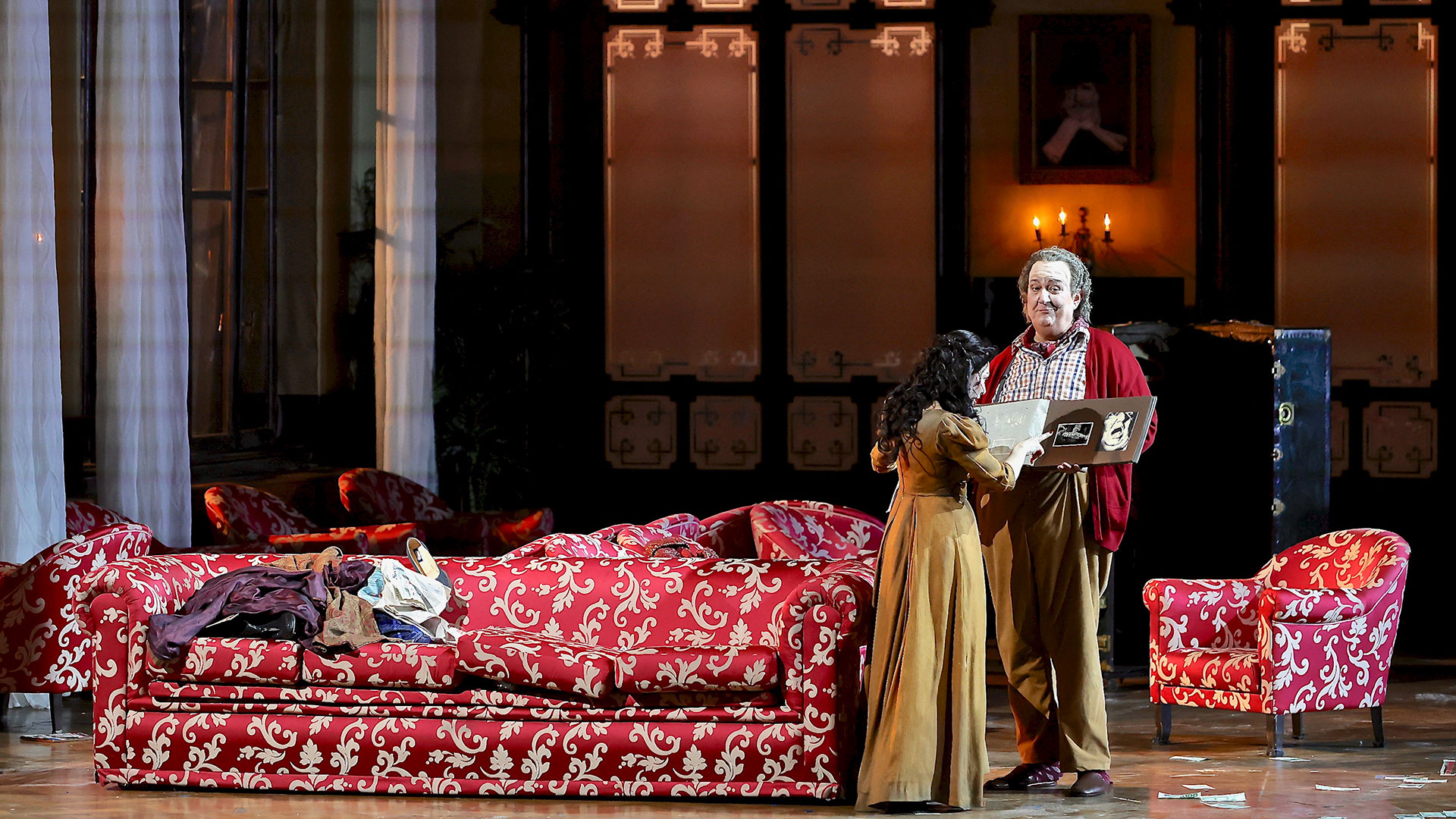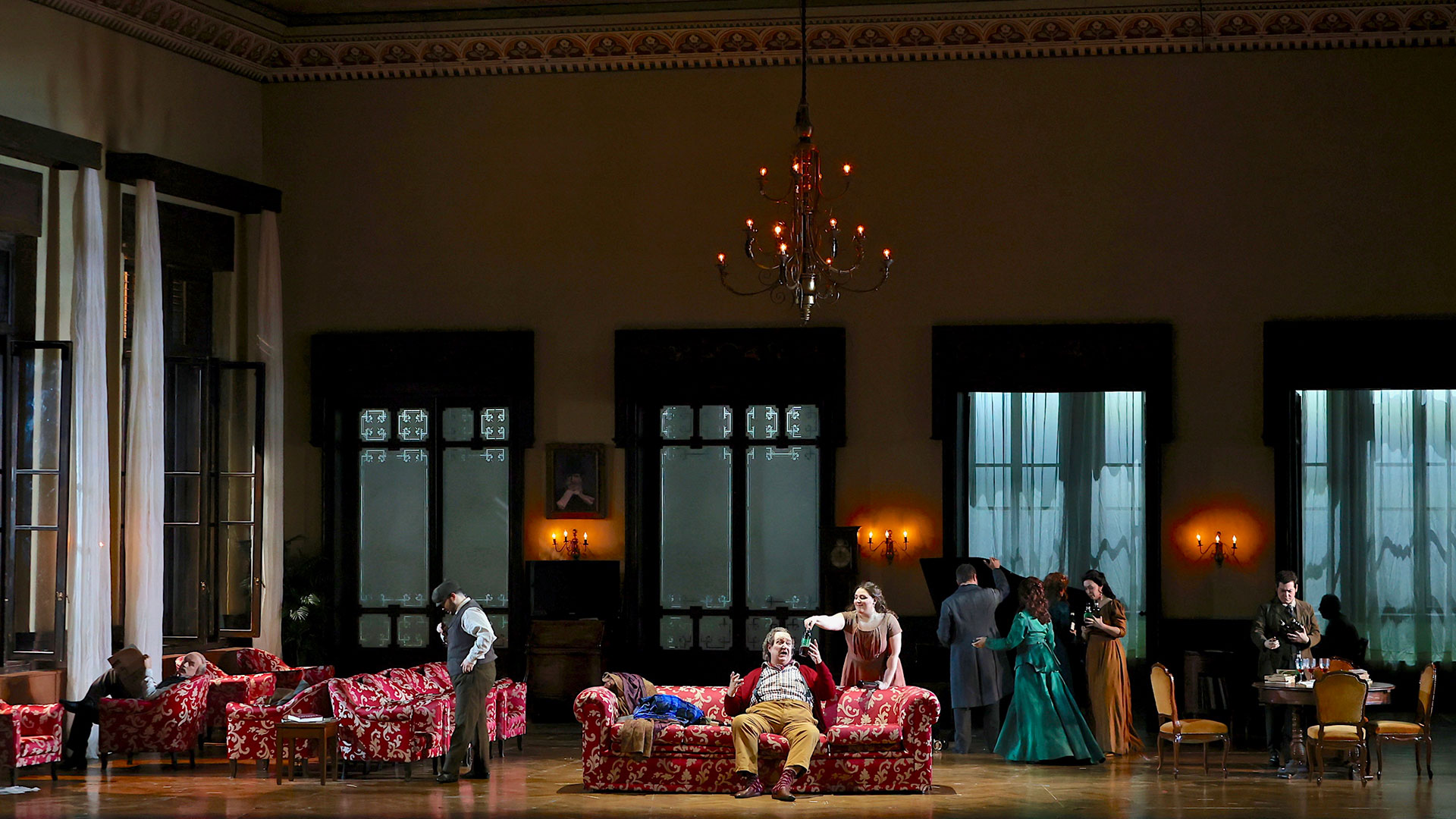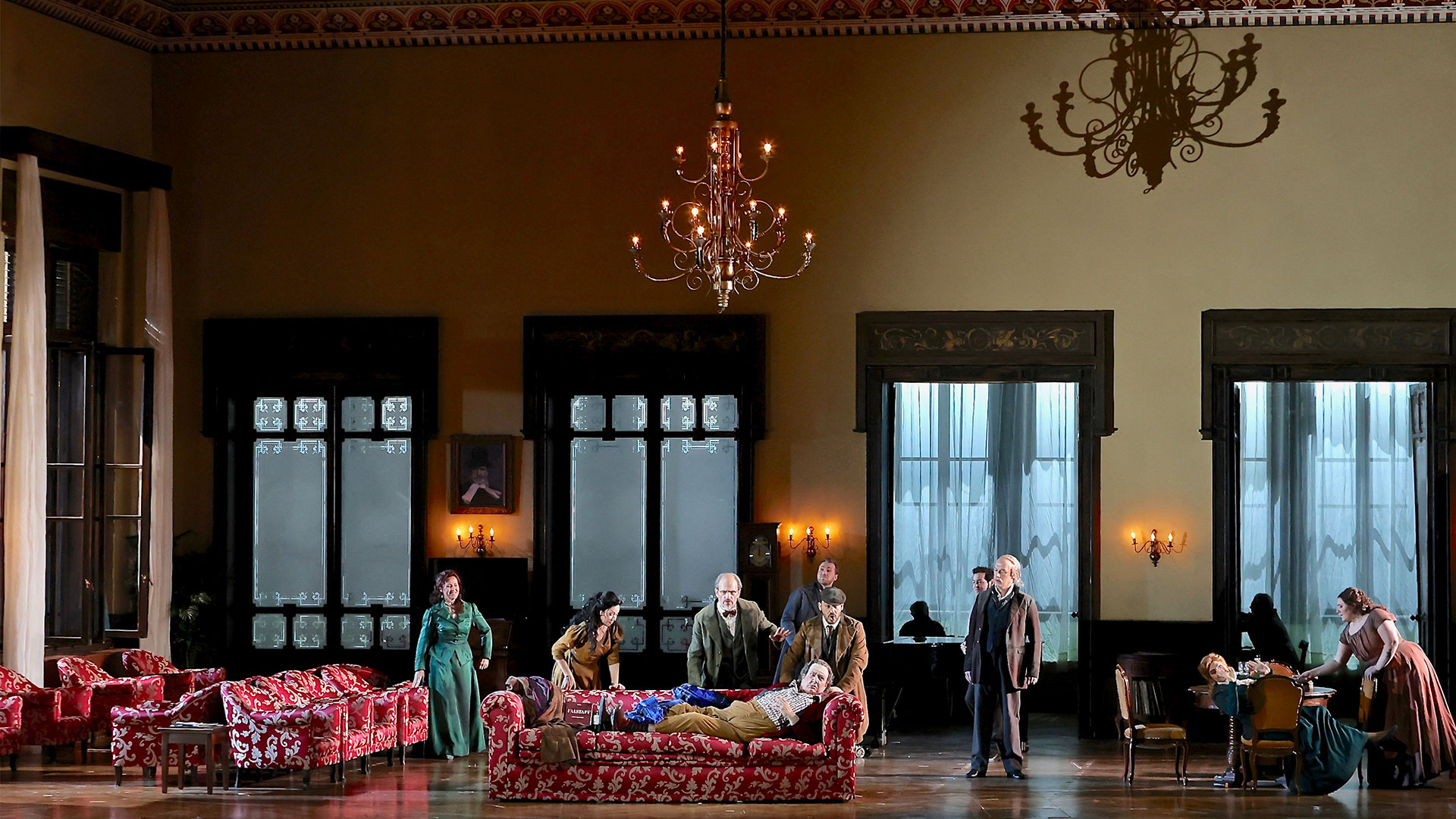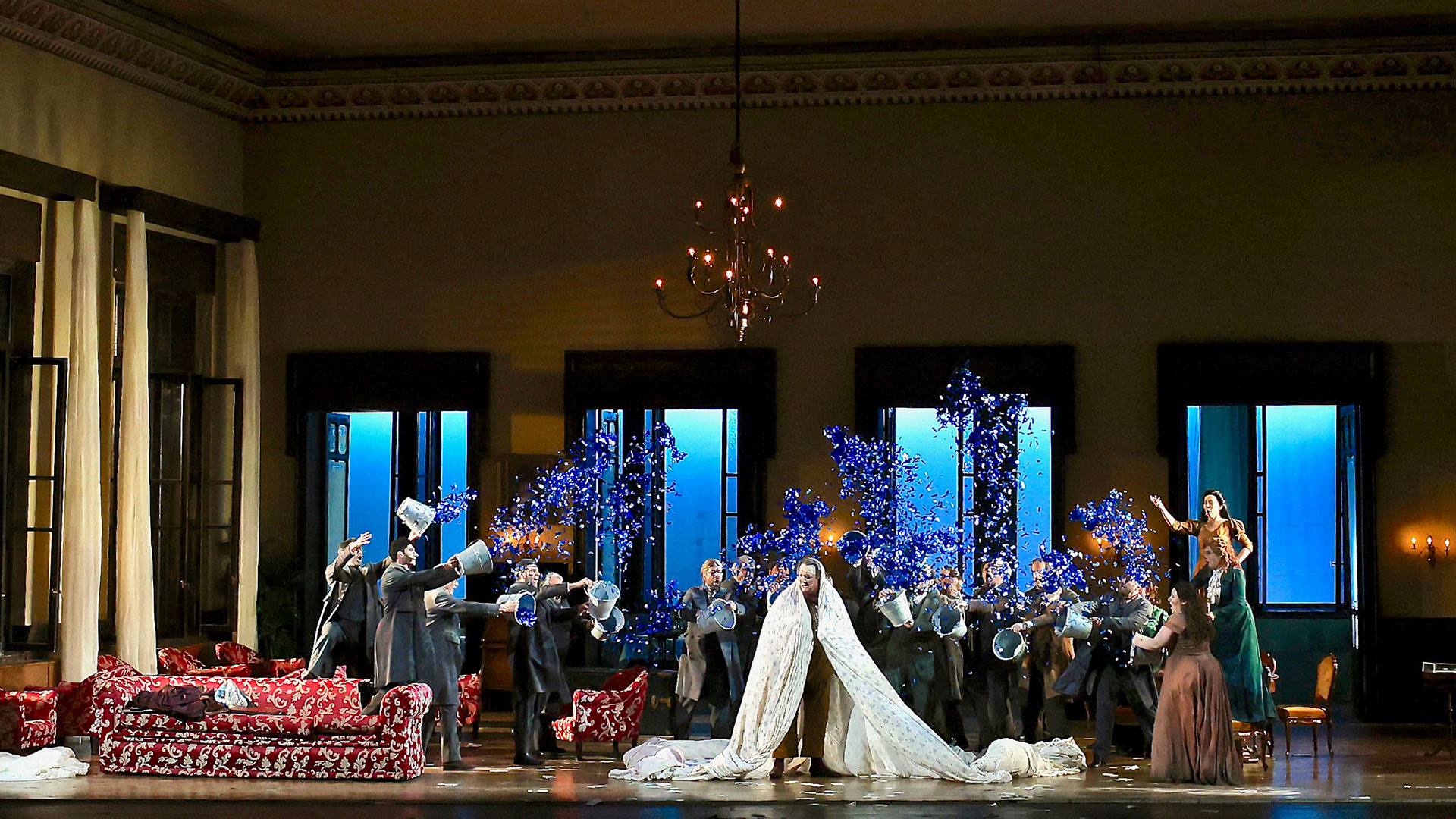Lyric comedy in three acts by Giuseppe Verdi, libretto by Arrigo Boito from the play The Merry Wives of Windsor and the play The History of Henry the Fourth by William Shakespeare
Produced by Fondazione Teatro Carlo Felice di Genova
Characters and interpreters:
Sir John Falstaff
Ambrogio Maestri
Ford
Ernesto Petti
Fenton
Galeano Salas
Dottor Caius
Blagoj Nacoski
Bardolfo
Oronzo D’Urso
Pistola
Luciano Leoni
Alice Ford
Erika Grimaldi
Nannetta
Caterina Sala
Mrs. Quickly
Sara Mingardo
Mrs. Meg Page
Paola Gardina
Concertmaster and conductor
Jordi Bernàcer
Director
Damiano Michieletto
taken from
Andrea Bernard
Scenes
Paolo Fantin
Costumes
Carla Teti
Lighting
Alessandro Carletti
Video
rocafilm Filmproduktion
Orchestra, Chorus and Technicians of the Opera Carlo Felice Genova
Choirmaster Claudio Marino Moretti
Ballet Fondazione Formazione Danza e Spettacolo ‘For Dance’ ETS
Stage Director
Luciano Novelli
Stage musical director
Simone Ori
Maitre d’s
Sirio Restani, Antonella Poli, Silvia Gasperini
Stage Masters
Andrea Gastaldo, Anna Maria Pascarella
other Choir Master
Patrizia Priarone
Lighting Master
Luca Salin
Master of supertitles
Simone Giusto
Music archive manager
Simone Brizio
Stage director
Alessandro Pastorino
Console Handling Manager
Andrea Musenich
Engineer foreman
Gianni Cois
Foreman electricians/lighting booth
Marco Gerli
Tooling foreman
Tiziano Baradel
Head of audio/video department
Walter Ivaldi
Head of tailoring, shoemaking, make-up and wigs
Elena Pirino
Make-up and hair co-ordinator
Raul Ivaldi
Scenes assistant
Gianluca Cataldo
Costume assistant
Giulia Giannini
Light designer assistant
Ludovico Gobbi
Scenes and props
Fondazione Teatro Carlo Felice
Costumes
Teatro alla Scala
Footwear
C. T. C. Pedrazzoli
Wigs
Audello Teatro
Special effect
Flavio Guerini
Supertitles by
Fondazione Teatro Carlo Felice
Opera in brief
by Ludovica Gelpi
When Giuseppe Verdi began working on his last opera, Falstaff, he was seventy-seven years old and had written twenty-six musical theatre works (thirty-two if you consider the different versions of some of them). The last of these was the lyric drama Othello, first performed in 1887 and created together with the librettist Arrigo Boito. The special harmony with Boito was a new experience for Verdi; he had rarely experienced such affinity with his librettists, so much so that the two of them started work on Falstaff shortly afterwards. Boito adapted William Shakespeare’s comedy The Merry Wives of Windsor (Le allegre comari di Wiondsor) and the drama The History of Henry the Fourth (Henry IV) into a single libretto. The combination of the two plays was one of the key elements for the psychological development of the protagonist, for whom Boito drew some traits from Henry IV, adding depth and facets to the lighter plot of The Merry Wives of Windsor. Verdi was so satisfied with the first reading of the libretto that he didn’t want to make any changes. Perhaps also because of the trust he placed in Boito, the composer was about to tackle a comic work for the first time after his youthful opera buffa Un giorno di regno, composed in 1840 and received lukewarmly by the public. The first performance of Falstaff was held at the Teatro alla Scala on 9 February 1893. The audience included the most famous composers and artists of the time, and an exceptional cast performed on stage. Falstaff was an immediate success.
The plot centres on the elderly protagonist, Sir John Falstaff, a funny but complex character, equally clever, ironic, melancholic and cynical, the dramatic fulcrum of the entire story. The group of women consists of Alice and Meg, the women that Falstaff tries to seduce with the intention of obtaining their husbands’ money, and his accomplices Mrs Quickly and Alice’s daughter Nannetta, who join forces with the aim of unmasking Falstaff. The men’s group acts as a counterpoint, made up of Ford – Alice’s husband, first jealous and then complicit in the prank – his friend Cajus, and Falstaff’s former followers Pistola and Bardolfo, determined to take revenge on the old knight. In the background, the love story between the young Nannetta and Fenton unfolds, whose sincere and spontaneous dimension is in a certain sense a tribute to the ‘canon’ of the tenor and soprano in love but unable to live their love openly, typical of comic opera. Each of the three acts is divided into two parts. In the first two acts, the drama adheres completely to a principle of realism that is also typical of the genre, while in the third act, thanks to a game of ghostly disguises and the nocturnal setting, a surprising fairytale element is introduced. The realism of the comedy remains a key point of the dramaturgy of the opera, which in this sense is not only an exploration of the comic genre but a true reinterpretation of the genre in a contemporary key, with attention to verisimilitude and psychological depth.
One of the elements that most surprised and continues to surprise in this last title is the stylistic innovation implemented by Verdi, who has always been a protagonist of the developments of 19th century opera in Italy and even at the end of his career was still searching for new expressive languages on all possible levels. As mentioned, the genre itself is a novelty, that of the lyric comedy. Structurally, the succession of more or less closed numbers is completely absent, the musical discourse is continuous from beginning to end, and this continuity is guaranteed by the use of a new musical style. In the vocal lines, moments of greater melodism alternate with more declamatory passages, and it is also thanks to the skilful orchestral blend and the pressing and sustained rhythm that no interruption is perceived. It is certain that on the one hand Falstaff was the crowning glory of Verdi’s artistic career and of the history of 19th-century Italian opera, and on the other hand it was one of the first experiments in musical theatre that was truly free from the models of melodrama as it had been understood until then, and a valuable point of reference for young contemporary opera composers who would from then on develop a new way of understanding opera.
